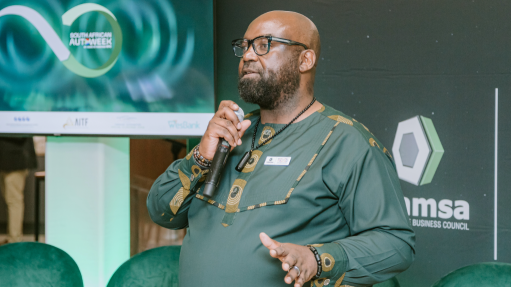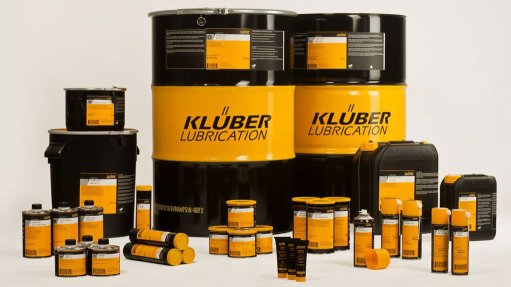Reversal of decline in SA’s ability to provide clean water, sanitation could be in sight, forum hears
South Africa’s ability to provide a reliable supply of clean drinking water and a functional sanitation system has been on the decline for decades.
However, Department of Water and Sanitation (DWS) director-general Dr Sean Phillips and other speakers at a networking forum believe this downward trend is coming to an end.
The forum, hosted by Nedbank and the New Partnership for Africa’s Development’s (Nepad’s) Business Foundation in Johannesburg in late October, discussed South Africa’s water sector and the challenges it faced.
Currently, many regions are experiencing water quality decline, there are delayed infrastructure projects, water boards are becoming insolvent and municipalities are failing to maintain infrastructure.
Phillips noted that a series of interventions could reverse this, while Nedbank CIB divisional executive Thiago Almeida said South Africa could quickly resolve its water and sanitation crisis, but private-sector involvement is key.
“We are agnostic as to whether it is done by the public sector or the private sector, but we are very conscious of the fact that there needs to be private-sector participation for speed of roll-out,” Almeida said, noting that about R30-billion in investment is needed each year to get the sector to where it should be and maintain it at an adequate level.
While privatising water is not on government’s agenda, government does want higher levels of private-sector financing of water and increased involvement of private-sector skills in the management of water services, said Phillips.
“Amendments to the Water Services Act would tackle widespread municipal dysfunction and the involvement of the private sector would be key to supporting municipalities. The private sector, particularly the banks and the pension funds, are keen to invest there. And there are private-sector companies which have the skills and are also keen to get involved,” he continued.
Phillips further pointed to the establishment of the National Water Resource Infrastructure Agency, currently under review at Parliament, which will help merge the Trans-Caledon Tunnel Authority (TCTA), which raises finance on the markets for infrastructure projects; the Water Trading Entity, which collects revenue from water sales; and the DWS infrastructure branch, which maintains and operates the national water system.
“The main reason for doing this is to create an entity which can raise finance on the markets more effectively than the TCTA,” he explained.
In addition, the new Water Partnership Office (WPO), led by Johann Lübbe, will support municipalities and water boards in developing bankable projects, with the WPO currently developing a toolkit for the creation, preparation and structuring of projects within various subsectors in the water services value chain.
Meanwhile, South African Water Works (SAWW) MD Shyam Misra said that work done by the company reveals how private-sector involvement can enable a reliable supply of water, referencing SAWW’s projects in Ballito and Mbombela.
SAWW subsidiary Siza Water, for example, has a 30-year concession on the Dolphin Coast and shares its profits with the Ilembe district municipality since achieving the required real return outlined in the concession contract.
“The contract is designed to attract the private sector to partner with a municipality, bring in the expertise, skill the staff and, through operating efficiency, to achieve the return to shareholders. In striving to achieve the contractual return, there is an incentive to both the parties to benefit from the efficiency via the profit-sharing mechanism.”
Comments
Press Office
Announcements
What's On
Subscribe to improve your user experience...
Option 1 (equivalent of R125 a month):
Receive a weekly copy of Creamer Media's Engineering News & Mining Weekly magazine
(print copy for those in South Africa and e-magazine for those outside of South Africa)
Receive daily email newsletters
Access to full search results
Access archive of magazine back copies
Access to Projects in Progress
Access to ONE Research Report of your choice in PDF format
Option 2 (equivalent of R375 a month):
All benefits from Option 1
PLUS
Access to Creamer Media's Research Channel Africa for ALL Research Reports, in PDF format, on various industrial and mining sectors
including Electricity; Water; Energy Transition; Hydrogen; Roads, Rail and Ports; Coal; Gold; Platinum; Battery Metals; etc.
Already a subscriber?
Forgotten your password?
Receive weekly copy of Creamer Media's Engineering News & Mining Weekly magazine (print copy for those in South Africa and e-magazine for those outside of South Africa)
➕
Recieve daily email newsletters
➕
Access to full search results
➕
Access archive of magazine back copies
➕
Access to Projects in Progress
➕
Access to ONE Research Report of your choice in PDF format
RESEARCH CHANNEL AFRICA
R4500 (equivalent of R375 a month)
SUBSCRIBEAll benefits from Option 1
➕
Access to Creamer Media's Research Channel Africa for ALL Research Reports on various industrial and mining sectors, in PDF format, including on:
Electricity
➕
Water
➕
Energy Transition
➕
Hydrogen
➕
Roads, Rail and Ports
➕
Coal
➕
Gold
➕
Platinum
➕
Battery Metals
➕
etc.
Receive all benefits from Option 1 or Option 2 delivered to numerous people at your company
➕
Multiple User names and Passwords for simultaneous log-ins
➕
Intranet integration access to all in your organisation
















